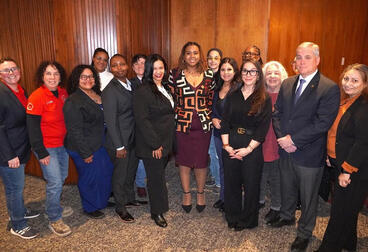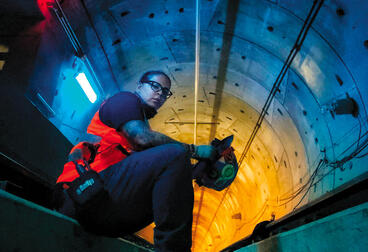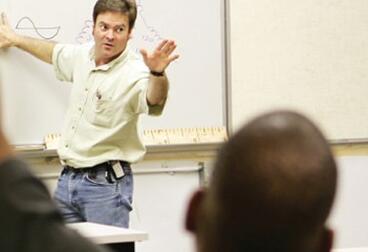Date Posted
There are endless examples of big corporations and their use of think-tanks to push their‰Û¬agenda. The New York Times published an article titled ‰ÛÏHow Think-Tanks Amplify Corporate America‰Ûªs Influence.‰Û� It describes how a large corporation seeking an $8 billion development project in California used a Washington D.C. based think-tank to convince the media, policy-makers and the public to accept the development.
According to the New York Times, the corporation donated $400,000 to the think-tank for its services. Corporations have poured millions of dollars into think-tanks, resulting in one-sided campaigns, all designed to increase the profits for certain industries. For example, the gas and oil industries have given hundreds of millions of dollars to think-tanks to deny the existence of climate change. Other groups have worked with think-tanks to promote the privatization of key government institutions, like the United States Postal Service, Social Security and different aspects of the U.S. prison system.
Think-tanks tend to position themselves as a university without students, but in reality they are organizations chasing funds with a blurred line between researchers and lobbyist. Tired of the constant misinformation fed to the American people, Business Manager Christopher Erikson decided to create the International Brotherhood of Electrical Workers (IBEW), Local 3 Think-Tank. The Local 3 Think-Tank is comprised solely of rank-and-file Local 3 members holding bachelor‰Ûªs and master‰Ûªs degrees from various academic institutions.
The members of the IBEW Local 3 Think-Tank are well aware that they lack the millions of dollars at their disposal to promote their agenda that is typical of most think-tanks. Nevertheless, they work tirelessly to research the issues pertinent to labor using academic research principles to adequately and accurately present information for both the membership of Local 3 and the general public. Business Manager, Christopher å_Erikson asked the group to research income inequality in the United States. The group gathered to design the framework of what would ultimately be a research paper on the topic. It was agreed the following themes would be covered: the effects and causes of income inequity on the U.S. worker; bubble-up economics; trickle-down economics; and, the role of the International Monetary Fund and World Bank on promoting global inequity. The ten-member group quickly divided themselves into five separate sub-groups and dedicated hundreds of hours over the course of nearly a year researching and writing about the topic of income inequality.
The end product was a one-hundred twenty six-page document, all written and researched by rank-and-file members of å_Local 3 and supported by Business Manager Christopher Erikson, Chairman of the Joint Industry Board (JIB) Dr. Gerald Finkel and JIB Program Developer Dr. Partha Banerjee. One member of the group said, ‰Û÷the strength and dedication of writing such a document comes from being a tradesman and the learned characteristic of being meticulous to every fine detail.‰Û� The research paper is titled ‰ÛÏThe Unprecedented Income Inequity in America‰Û� and should be available to everyone shortly. It is hoped the research conducted by the Local 3 Think-Tank will serve as a resource of accurate information and data on issues impacting the labor market and the status of organized labor.
According to the New York Times, the corporation donated $400,000 to the think-tank for its services. Corporations have poured millions of dollars into think-tanks, resulting in one-sided campaigns, all designed to increase the profits for certain industries. For example, the gas and oil industries have given hundreds of millions of dollars to think-tanks to deny the existence of climate change. Other groups have worked with think-tanks to promote the privatization of key government institutions, like the United States Postal Service, Social Security and different aspects of the U.S. prison system.
Think-tanks tend to position themselves as a university without students, but in reality they are organizations chasing funds with a blurred line between researchers and lobbyist. Tired of the constant misinformation fed to the American people, Business Manager Christopher Erikson decided to create the International Brotherhood of Electrical Workers (IBEW), Local 3 Think-Tank. The Local 3 Think-Tank is comprised solely of rank-and-file Local 3 members holding bachelor‰Ûªs and master‰Ûªs degrees from various academic institutions.
The members of the IBEW Local 3 Think-Tank are well aware that they lack the millions of dollars at their disposal to promote their agenda that is typical of most think-tanks. Nevertheless, they work tirelessly to research the issues pertinent to labor using academic research principles to adequately and accurately present information for both the membership of Local 3 and the general public. Business Manager, Christopher å_Erikson asked the group to research income inequality in the United States. The group gathered to design the framework of what would ultimately be a research paper on the topic. It was agreed the following themes would be covered: the effects and causes of income inequity on the U.S. worker; bubble-up economics; trickle-down economics; and, the role of the International Monetary Fund and World Bank on promoting global inequity. The ten-member group quickly divided themselves into five separate sub-groups and dedicated hundreds of hours over the course of nearly a year researching and writing about the topic of income inequality.
The end product was a one-hundred twenty six-page document, all written and researched by rank-and-file members of å_Local 3 and supported by Business Manager Christopher Erikson, Chairman of the Joint Industry Board (JIB) Dr. Gerald Finkel and JIB Program Developer Dr. Partha Banerjee. One member of the group said, ‰Û÷the strength and dedication of writing such a document comes from being a tradesman and the learned characteristic of being meticulous to every fine detail.‰Û� The research paper is titled ‰ÛÏThe Unprecedented Income Inequity in America‰Û� and should be available to everyone shortly. It is hoped the research conducted by the Local 3 Think-Tank will serve as a resource of accurate information and data on issues impacting the labor market and the status of organized labor.


